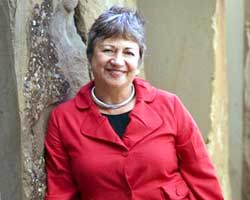California Starts Capping and Trading

On Monday, the California Air Resources Board (CARB) announced that all 23.1 million pollution credits available for 2013 were sold at last Wednesday’s auction for $10.09 each, generating $233.3 million in revenue. Additionally, the state sold 14% of almost 40 million credits available for 2015, generating an additional $55.8 million.
“The auction was a success and an important milestone for California as a leader in the global clean-tech market,” CARB Chairperson Mary D. Nichols said. “By putting a price on carbon, we can break our unhealthy dependence on fossil fuels.”
Wednesday’s auction involved 350 industrial businesses in the state, which as a group operate about 600 facilities throughout California. They include utilities, food processors and oil refineries. Starting in 2015, the program also will cover distributors of natural gas and other fuels. California’s pollution permits, a result of AB 32, also known as the Global Warming Solutions Act, start at a minimum price of $10 for the right to emit 1 metric ton of greenhouse gases. Polluters initially get 90% of their needed credits free, but must buy more if they plan to release carbon dioxide and other greenhouse gases above allotted levels.
“We weren’t trying to sell to the highest bidder,” Nichols noted. The goal was “to get the allowances sold to the people who need them.”
AB 32 is a landmark law that passed in 2006 to reduce California’s production of carbon dioxide, methane and related gases to 1990 levels by 2020. The 1990 levels are about 17% lower than current amounts. According to CARB, a portion of the funds generated from the pollution permits will go toward energy efficiency initiatives.
“The smooth execution of this first auction paves the way for a cleaner California,” said Timothy O’Connor, Environmental Defense Fund’s Director of California Climate and Energy Initiative. “With cap and trade, Californians don’t have to choose between the environment and the economy. It will attract more investments in clean energy, keep California competitive, and reduce our dependence on foreign oil.”
Despite its success, the program has not been without controversy. Critics argue the cap-and-trade program is unfair to large businesses and will kill jobs. On the eve of the auction, the California Chamber of Commerce filed a lawsuit, stating the program gives rise to an unconstitutional tax. The chamber has expressed support toward the goal of reducing carbon emissions, but believes the state should give away all the allowances for free.
Selling pollution credits for a low price “doesn’t make it any less illegal,” remarked Loren Kaye of the California Foundation for Commerce and Education, an affiliate of the California Chamber of Commerce.
“Instead of hiring workers, expanding production, or investing in new carbon-reducing equipment, these auction dollars will be distributed by government for other purposes,” added Shelly Sullivan of the AB32 Implementation Group, a business coalition that, like the Chamber of Commerce, supports greenhouse gas reductions but opposes the auctioning of allowances.
Since the first auction went on as scheduled, the chamber’s lawsuit is now aimed at halting future auctions—the next of which is scheduled for February 2013.

